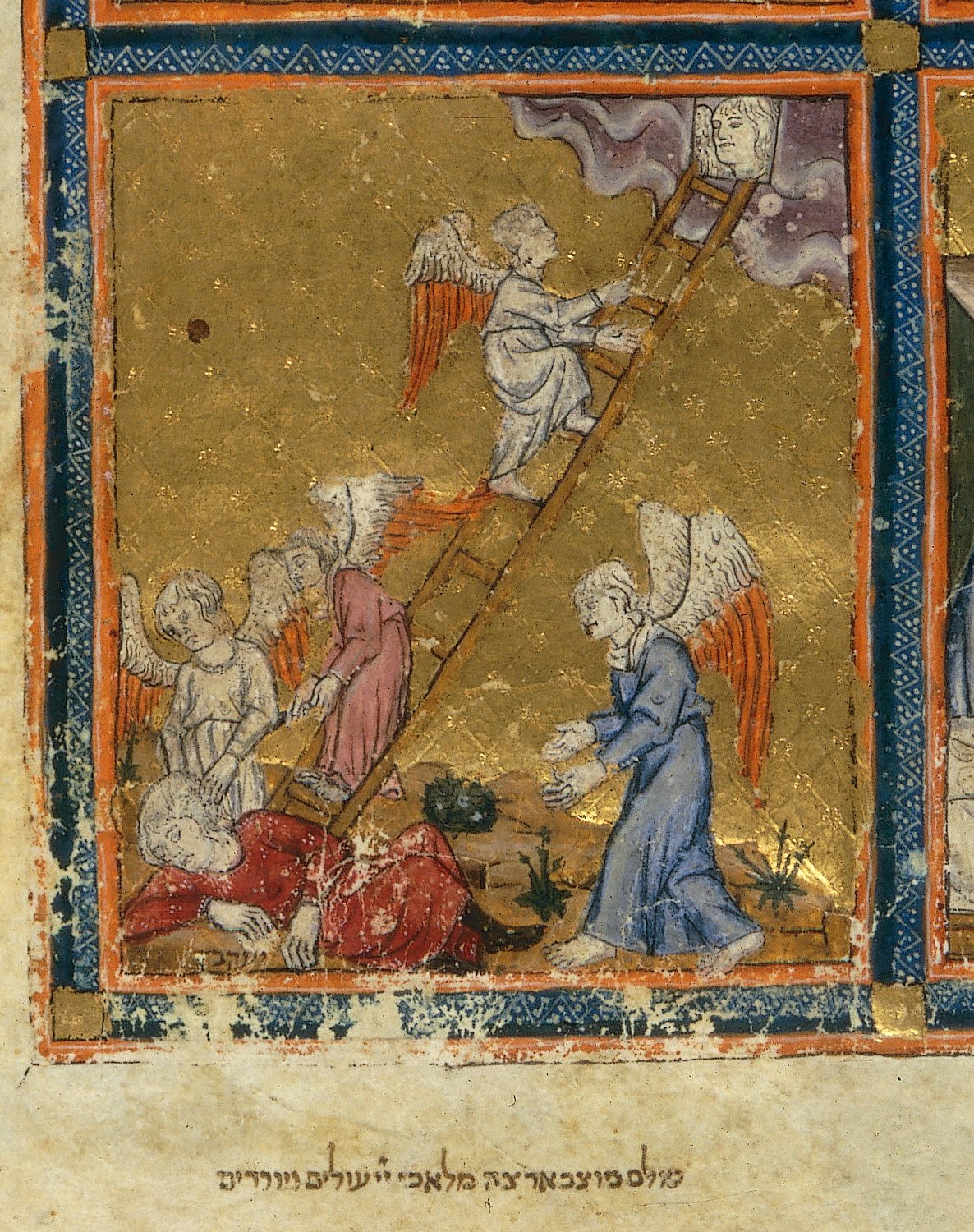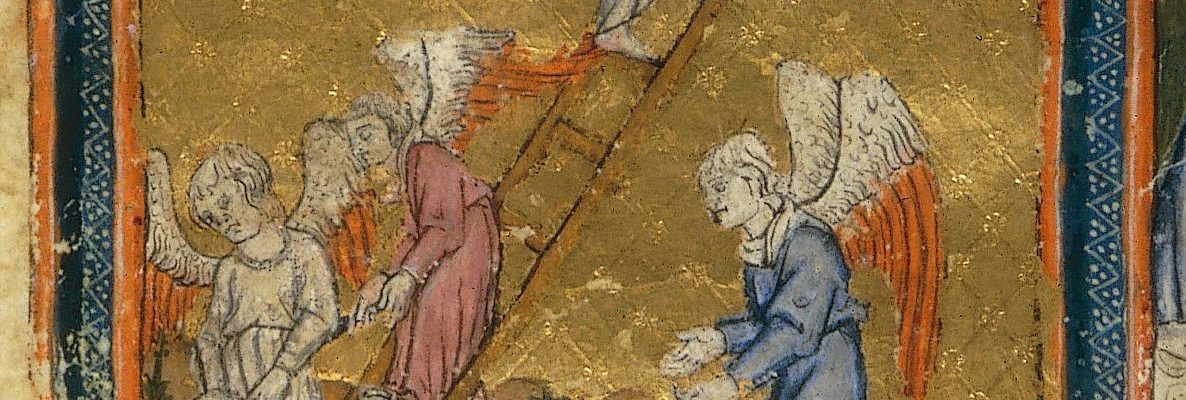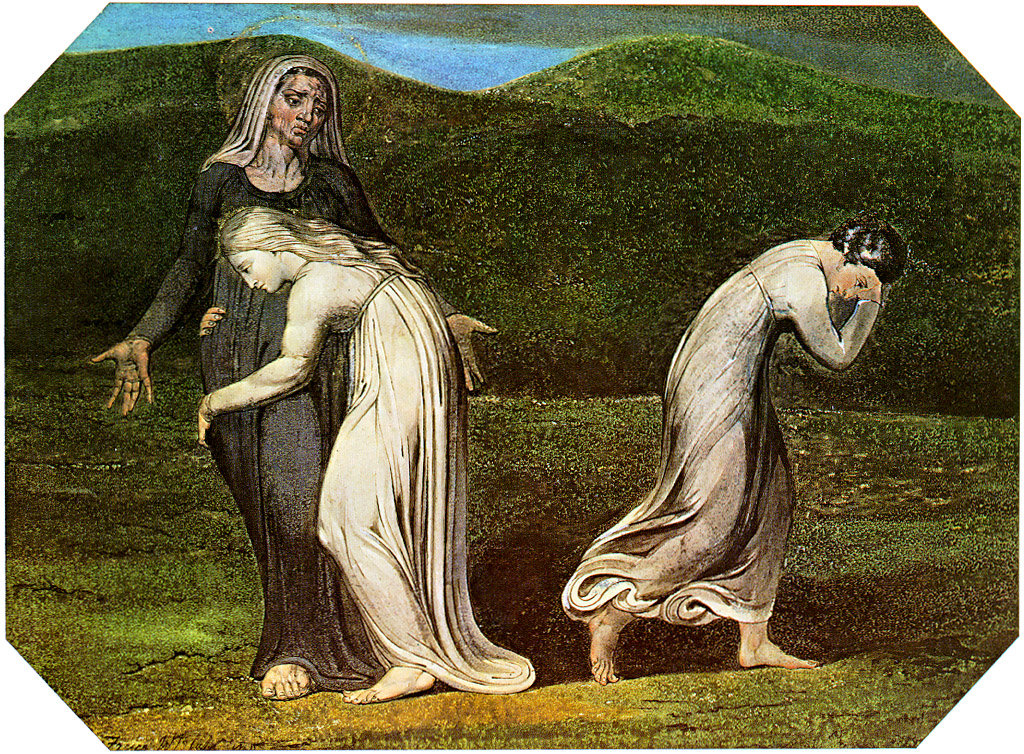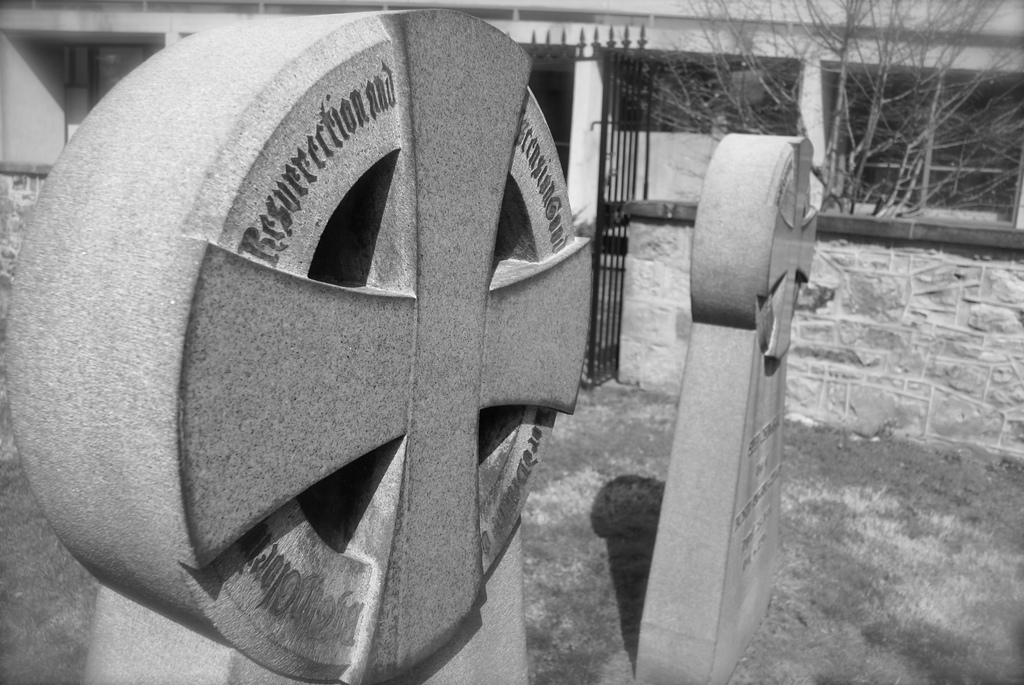So this is the sermon. I also have an audio of it, which is much more expansive, but I have not pulled it off the recorder yet. Please feel free to offer comments!
Patronal Festival for St. Andrew’s, State College
Genesis 28: 10-17
Romans 10: 8b-18
Matthew 4: 18-22
Jacob at the turning point.
When I preached two weeks ago I said that the primary theme of the Bible is the two-fold pattern of God’s love for us and our insistence on pushing God away from us, that is sin. The primary metaphor of God’s love for us in the Bible and his primary way of continually drawing us back to himself is the notion of covenant. A covenant is simply a contract or promise between to groups of people.
In the Bible God made a covenant with Adam and Eve, that he would take care of them in the Garden if they simply would not eat of the fruit. Of course they did and so the intimate relationship we were supposed to have with God was broken. From that moment onward the biblical story is about one of God inexorably providing a path for us to follow back to him. Initially, we were left to our own devices. God waited to see if humanity would call upon him. We didn’t and so the world needed a rather large scale cleansing. After the flood God made his lasting covenant with all humanity that he would never destroy the world again, the rain-bow in the sky, a sign that God had laid down his weapon, was placed in the sky as the sign of this covenant. The requirements for Noah and his descendants, their side of the contract, was relatively slight: do not take another person’s life and be fruitful and multiply.
And then God calls out to Abraham. God promises to bless Abraham and make him a great nation, a nation that will bless all other nations, and that his people will inherit the land of Canaan. Our reading from Genesis today is from a crucial moment in that story and I will return to it a moment. When God delivered Jacob’s descendants from Egypt he gave them the law at Sinai and we often refer to this as the Mosaic covenant since it was through Moses that the law was received. Finally, as we know and proclaim in our worship, God gave his only Son Jesus as the final covenant, the New Covenant through which we are ultimately and intimately reunited with God. As Paul reminds us in today’s reading from his letter to the Romans, “if you confess with your lips that Jesus is Lord and believe in your heart that God raised him from the dead, you will be saved.”
This is then is a brief outline of the history of God’s covenant with humanity. As I said a moment ago, Jacob’s story that we read today comes at a crucial moment in the story of God’s covenant with Abraham and his descendants. Jacob was Abraham’s grandson and it was Jacob whose name was changed to Israel and from whom all the Israelites descend. But at this moment in the story we are far from Egypt and Sinai. Jacob has left Beer-sheba and is on his way to Haran because with his mother’s help he has just stolen his father’s blessing from his elder brother Esau. Jacob was running for his life.

You recall all that God had promised Abraham and Abraham had acted in faith, although with some missteps and even though he and Sarah were old, but eventually Isaac was born. Isaac married Rebekah and eventually she was pregnant with twins and thought she would die in childbirth, the pain of them struggling in her belly was so great. And so she prayed that God would just let it all end. Instead she received a prophecy.
And the LORD said to her,
“Two nations are in your womb,
and two peoples born of you shall be divided;
the one shall be stronger than the other,
the elder shall serve the younger.”
The children would be safely born, the prophecy declared, and God was going to remain faithful to Abraham and his children. Rebekah seems to have taken this prophecy to heart, knowing that her youngest son Jacob would rule over her eldest Esau. But what God had promised she conspired to take for her son. So Jacob, who became a momma’s boy and a homebody, bought Esau’s birthright, all those things that would be inherited from his father, and under Rebekah’s guidance and planning he lied to his blind father in order to receive the blessing of his father that was to have been Esau’s.
And now Jacob is on his own for the first time. The momma’s boy is running from his angry brother and heading to his uncle’s home hundreds of miles away. Imagine his state of mind. He may have “bought” the birthright and stolen the blessing, but he didn’t actually have anything and he was in the middle of the wilderness on his way to what, he had no idea. And he lays down with a stone for his pillow.
Then God appears, stands beside him, and speaks to him. What does he say? He affirms his blessing, the blessing he gave to Abraham and to Isaac. Most of all, he gave Jacob the assurance he needed at this crucial time.
5 Know that I am with you and will keep you wherever you go, and will bring you back to this land; for I will not leave you until I have done what I have promised you.”
Why? Why is it that God offers Jacob such assurance when Jacob has done all he could to push God. God had promised Rebekah that Jacob would be the one to inherit Abraham’s covenant, yet rather than wait in faith to see how God would work this out they took matters in their own hands. In light of their disobedience and the anguish they have caused Isaac and Esau, we might have expected God to decide not to bless Jacob. But this is not God’s way. God’s covenant remains, no matter what we do, he remains firm. As Paul has said elsewhere, “the gifts and the calling of God are irrevocable” (Rom. 11.29). God had made a covenant with Abraham and all of his descendants and he would fulfill that in spite of the things that Jacob had done. This did not absolve Jacob of his guilt. No, as a result of what he did he would never see his mother again and his deception of his father would lead others, including his own sons, to deceive him in the same manner.
But God’s blessing remained and he would care for him nonetheless. In this “wilderness moment,” as one of my teachers called it, God spoke to Jacob and in his mercy reassured him that all would be well. We do not have to be Patriarchs or have visions of angels ascending and descending into heaven in order to be know that God will “keep us” wherever we go. The Hebrew term used in this phrase, שמר means to “preserve, guard, or protect.” Our ultimate safety is assured. We will have trials and troubles, as did Jacob, but God will bring us safely into his house.
In our epistle today, Paul reminds us that
The scripture says, “No one who believes in him will be put to shame.” For there is no distinction between Jew and Greek; the same Lord is Lord of all and is generous to all who call on him. For, “Everyone who calls on the name of the Lord shall be saved.”
Through Christ in the New Covenant all are called to be the family of God, not just Patriarchs or Israelites. All those who confess with their lips Jesus as the resurrected saviour will be saved and this salvation is our own resurrection and eternal life with Christ in his heavenly home.
The vision that Jacob received can and should be our own. It doesn’t matter what has brought you to this moment. It doesn’t matter where you are. And it doesn’t matter when the moment is, whether it is now or some dark night yet to come, the Lord is always there, standing beside us and assuring us that he is the Lord our God and that he will guard and protect us, bringing us safely into his house.
Our future and our salvation through Christ is assured, so let us exclaim with Jacob that “the Lord is in this place…[it] is none other than the house of God, and this is the gate of heaven.”
Come let us adore him.




